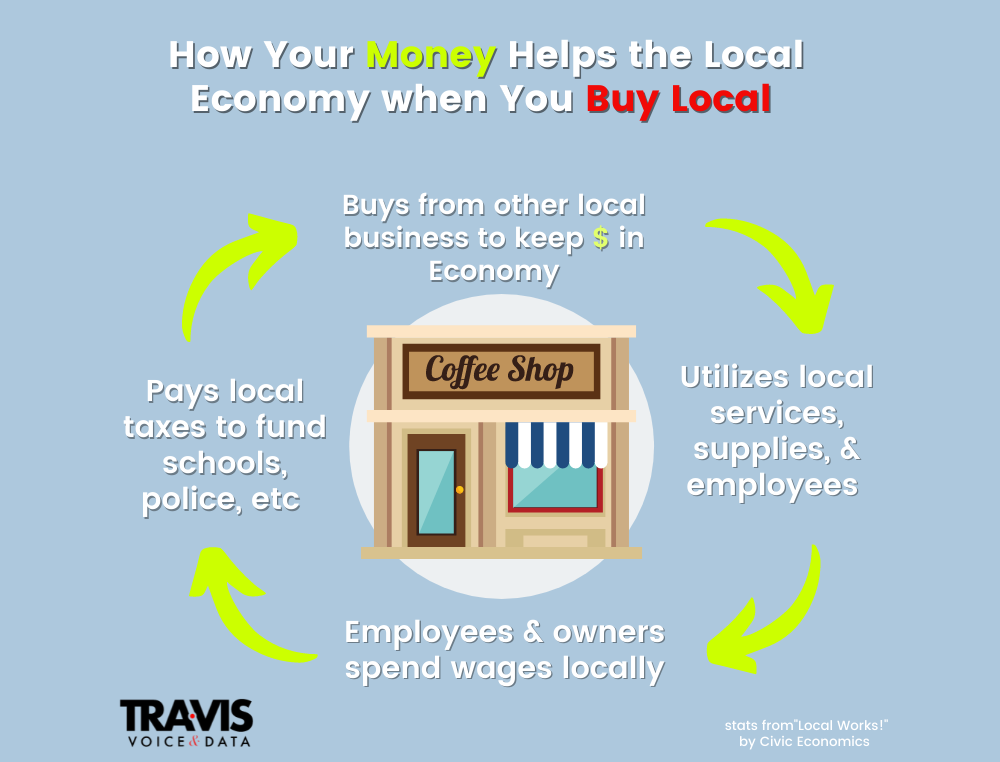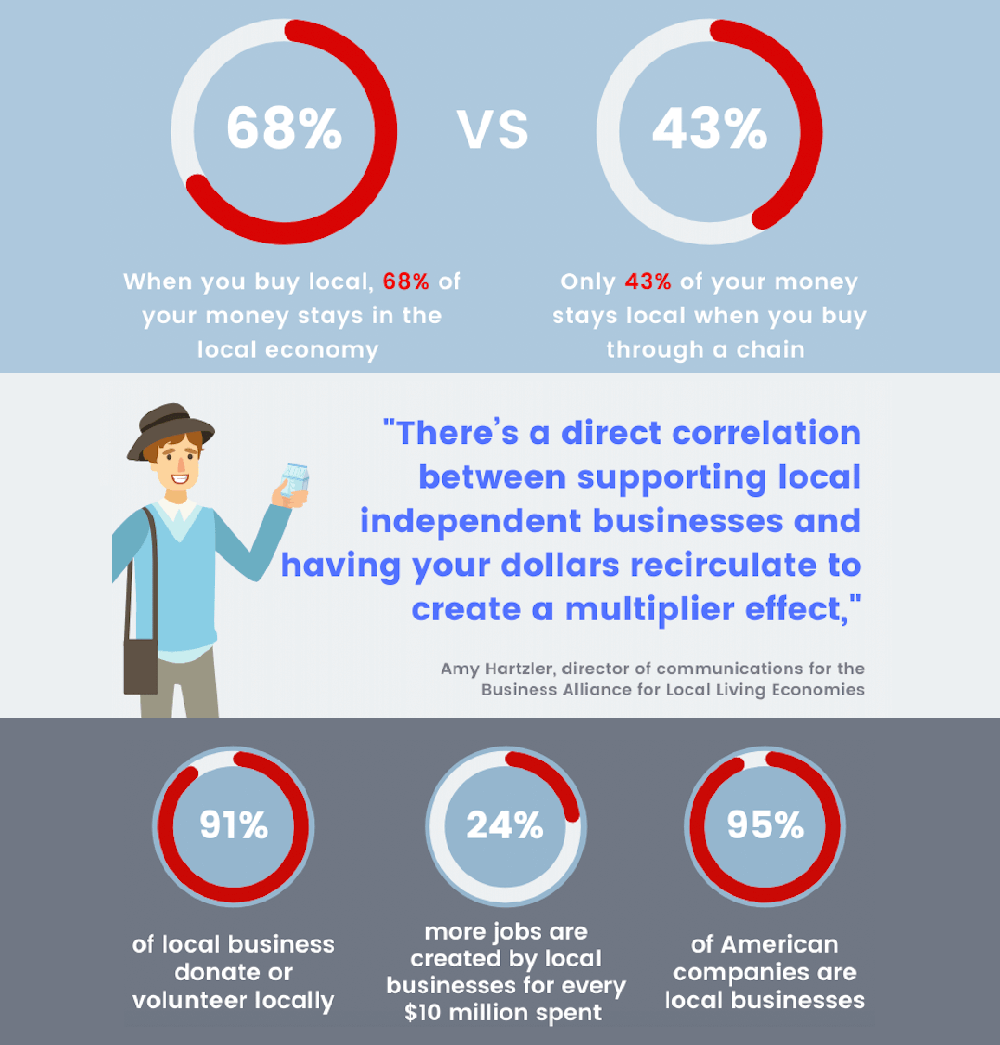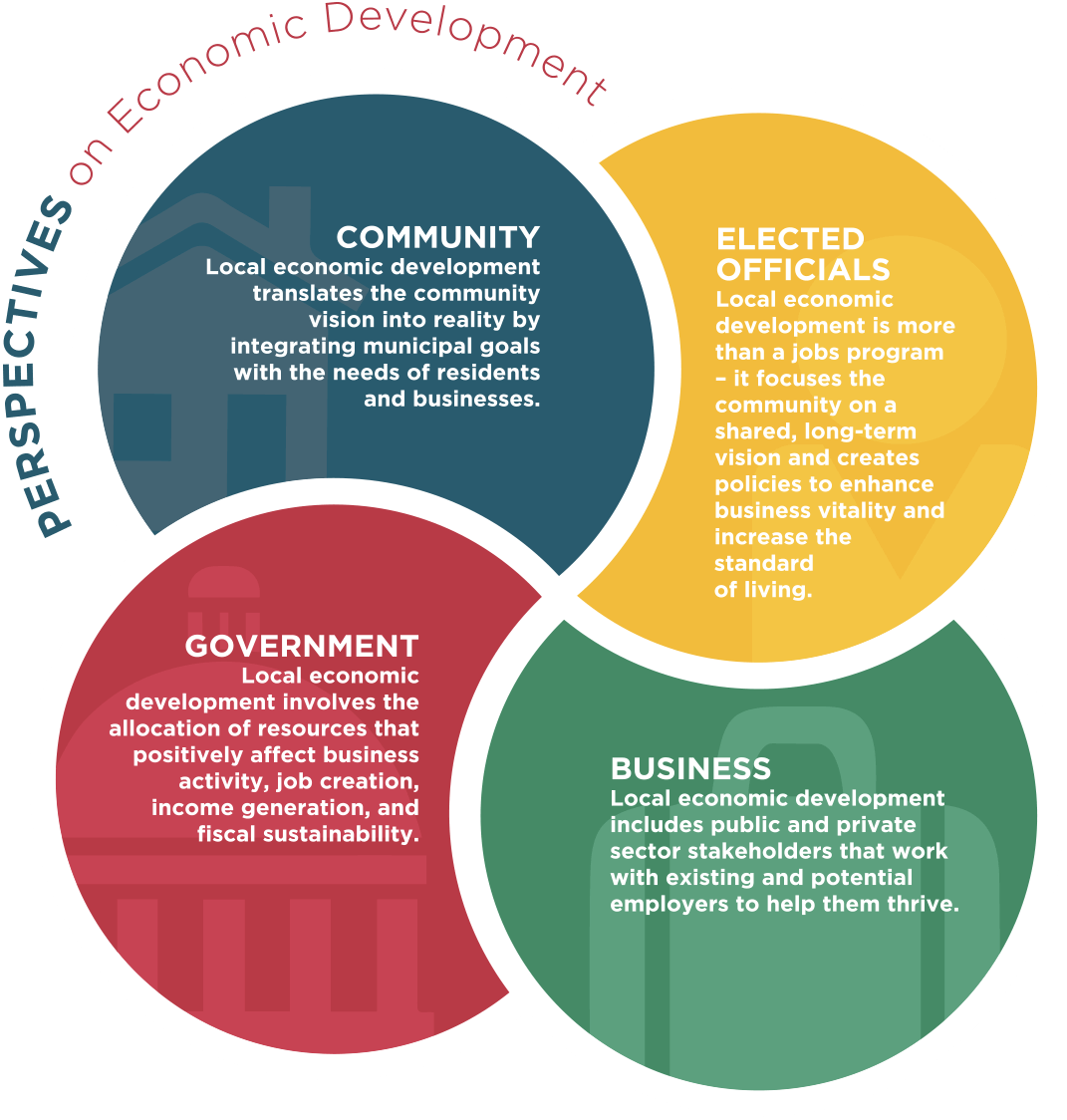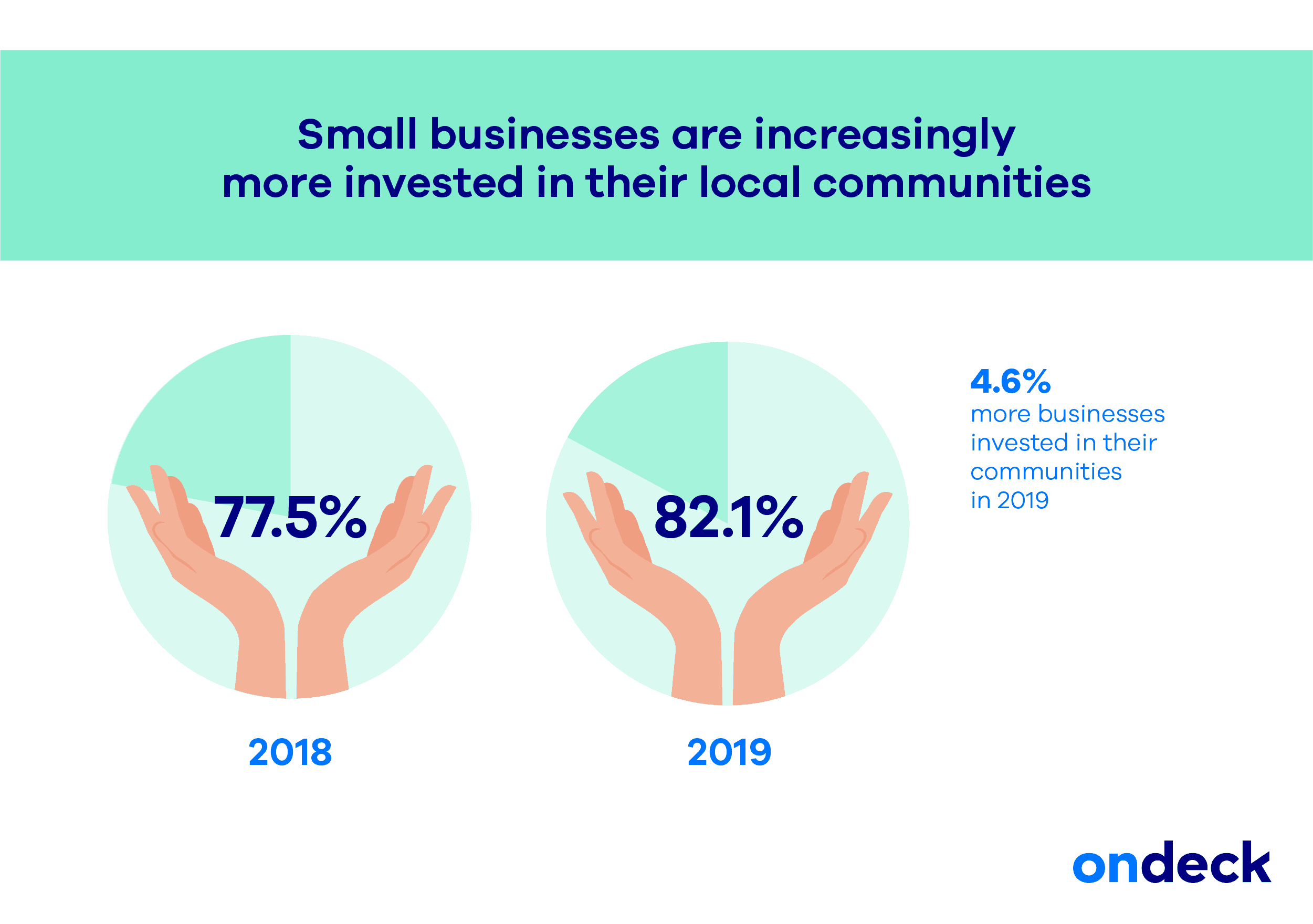How Local Businesses Help The Economy

In an era of globalized commerce dominated by multinational giants, the vital role of local businesses in bolstering economic health often fades into the background. From family-owned restaurants to independent bookstores, these enterprises are more than just places to shop; they are the lifeblood of communities, nurturing economic resilience and fostering unique local identities. The impact of these businesses stretches far beyond their storefronts, creating jobs, generating revenue, and contributing to the overall well-being of the areas they serve.
This article delves into the multifaceted contributions of local businesses to the economy. It examines how they stimulate job creation, boost local spending, foster community development, and contribute to a more diverse and vibrant economic landscape. We will explore data and insights from reputable organizations to understand the true extent of their economic impact and the importance of supporting them in an increasingly competitive market.
Job Creation and Economic Growth
One of the most significant contributions of local businesses is their role as job creators. Unlike large corporations that often prioritize automation and centralized operations, local businesses tend to rely more heavily on local labor.
According to the Small Business Administration (SBA), small businesses, which comprise a large percentage of local enterprises, are responsible for creating nearly two-thirds of net new jobs in the U.S. The SBA consistently emphasizes the critical role of small businesses in driving economic growth and employment opportunities.
These jobs are not just statistics; they represent livelihoods and opportunities for individuals within the community, contributing to reduced unemployment rates and increased economic stability.
Boosting Local Spending and Tax Revenue
When consumers spend money at local businesses, a larger portion of that revenue stays within the community. This is known as the "local multiplier effect."
A study by Civic Economics found that for every $100 spent at a local business, approximately $68 remains in the local economy, compared to only $43 when spent at a national chain. This retained revenue is then reinvested in the community through employee wages, supplier purchases, and local taxes.
Increased local spending translates directly into higher tax revenues for local governments. These revenues can then be used to fund essential public services such as schools, infrastructure, and public safety, improving the overall quality of life for residents.
Community Development and Social Fabric
Local businesses are often deeply embedded in the fabric of their communities, actively participating in local events, sponsoring youth sports teams, and supporting local charities.
They often contribute to the unique character and identity of a neighborhood, offering personalized customer service and fostering a sense of belonging. A survey by the American Independent Business Alliance (AMIBA) reveals that consumers consistently value the personalized service and community involvement provided by local businesses.
Furthermore, local businesses frequently serve as incubators for innovation and entrepreneurship, providing opportunities for individuals to pursue their passions and create unique products and services that cater to local needs.
Addressing Challenges and Promoting Sustainability
Despite their numerous benefits, local businesses often face significant challenges, including competition from large corporations, access to capital, and navigating complex regulations. These challenges can hinder their growth and limit their ability to contribute fully to the economy.
To promote the sustainability of local businesses, communities can implement various support measures, such as offering tax incentives, providing access to low-interest loans, and streamlining permitting processes. In addition, consumers can actively choose to support local businesses through conscious purchasing decisions.
Initiatives such as "Shop Local" campaigns and community-supported agriculture (CSA) programs can help raise awareness and encourage consumers to prioritize local businesses.
Looking ahead, the role of local businesses in the economy is likely to become even more critical. As concerns about income inequality, environmental sustainability, and community resilience grow, the contributions of local businesses in creating jobs, fostering local wealth, and building stronger communities will be increasingly valued. By supporting local businesses, we are investing in a more equitable, sustainable, and vibrant future for all.


















